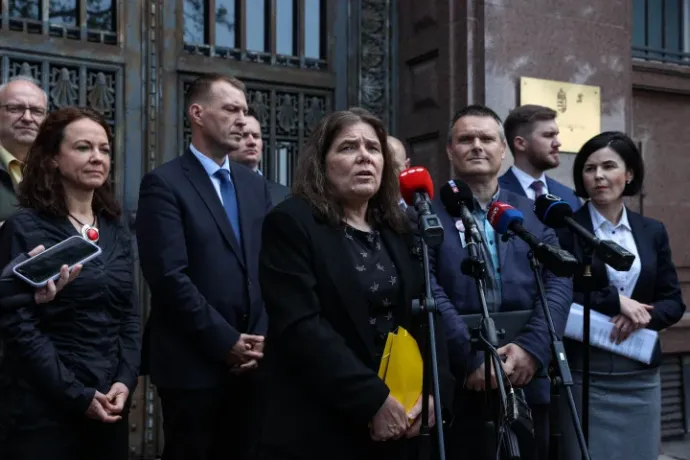Protests for education reform to be held in fifteen Hungarian towns on Thursday

On the 1st of June, protests will be held in fifteen Hungarian cities to once again demonstrate for education and against the introduction of the status law. The event, entitled "Let us breathe!", is organised by Áron Molnár "noÁr" and the Tanítanék Movement. According to them,
"the status law is not about improving the quality of public education and recognising the freedom of education, but is a petty revenge and a display of power".
In addition to Budapest, there will also be demonstrations in Sopron, Pécs, Szeged, Debrecen, Miskolc, Szentes, Eger, Szolnok, Szombathely, Veszprém, Nagykanizsa, Dunaújváros, Szekszárd and Balassagyarmat.
In the capital, the demonstration will take place in front of the Ministry of Interior, which is also responsible for education, starting at 5 pm. It is not yet known whether anything else is planned afterwards.
What is the status law?
On 2 March, the Ministry of Interior published the draft status law on the government's website, which teachers and students have dubbed the "revenge law". The Status Law would abolish the status of teachers as public servants and instead the government wants to introduce the status of "public education employees" for them. Several of the planned changes have been rumoured before, such as the issue of wage adjustment or the introduction of a performance evaluation system.
It seems that in the future, teachers and faculties will only be able to share their opinion on matters affecting their schools, while the final decisions would be made by the headteacher and the maintaining authority.
There would also be significant changes to the regulations on teachers' working time and workload in general. It would be allowed for the total daily working time to exceed 8 hours, providing that the daily working time doesn’t exceed 12 hours and the weekly hours don’t exceed 48 hours. It is precisely for these reasons that the Democratic Trade Union of Teachers (Pedagógusok Demokratikus Szakszervezete, PDSZ) believes that the draft legislation would not only restrict institutional autonomy, but would also result in the loss of several acquired rights.
The status law has been criticized by trade unions and other intellectuals, including former ministers and state secretaries, because they believe that the new rules are a threat to the basic conditions of quality education.

They argue that the status law is not a solution to the teacher shortage and will in fact lead to more teachers leaving the profession. The draft law has been dubbed "revenge law" because according to critics, revenge is the only thing motivating the government to revoke teachers' status of civil servants and to introduce measures which make strikes impossible and ban the expression of opinions.
Trade unions representing teachers say the uncertainty caused by the draft legislation will only increase the risk of teachers leaving their jobs. So far, more than 4,000 teachers have already indicated that they will resign if the law is passed. At a recent government briefing Gergely Gulyás, Minister of the Prime Minister's Office responded to this by saying that this is only 3% of active teachers and that it is not worth talking about the impact of the status law until the bill is submitted to parliament.
On 24 May, Minister of Interior Sándor Pintér, who is also responsible for education, held talks with opposition parties on the status law. Prior to the meeting, his ministry stressed that the government had already changed its position on 34 substantive issues compared to the original draft, following earlier negotiations with the trade unions.
Opposition representatives were accompanied to the meeting by a member each from the Teachers' Trade Union (PSZ), the Democratic Trade Union of Teachers (PDSZ), the Teachers' Movement, the Civil Platform for Public Education, the ADOM Student Movement and the United Student Front. However, they were not allowed to speak, only the politicians were given the word.
For more quick, accurate and impartial news from and about Hungary, subscribe to the Telex English newsletter!